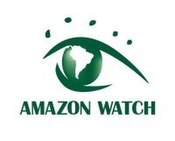Amazon Watch
 | |
| Founded | 1996 |
|---|---|
| Type | Non-governmental organization |
| Focus | Environmentalism Indigenous rights |
| Location | |
Area served | Amazon Basin |
Revenue | US$ 984,687 (2008) |
| Website | amazonwatch.org |
Founded in 1996, Amazon Watch[1] is a nonprofit organization based in San Francisco, California. It works to protect the rainforest and advance the rights of indigenous peoples in the Amazon Basin. It partners with indigenous and environmental organizations in Ecuador, Peru, Colombia and Brazil in campaigns for human rights, corporate accountability and the preservation of the Amazon's ecological systems.
Campaigns
In Ecuador, the organization supports a court case to hold the US oil company Chevron accountable for the dumping of 18 billion gallons of toxic waste water into a region of Ecuador's Amazon rainforest inhabited by more than 30,000 people – purported to be one of the largest oil related contaminations ever, far exceeding that of the Exxon Valdez disaster.[2]
In Peru, Amazon Watch is a plaintiff in a case against the US oil company Occidental for its damage to the rainforest.[3] It currently supports the Achuar indigenous people in resisting oil exploration on their lands by the Canadian oil company Talisman and the Argentinian company Pluspetrol.[4] Amazon Watch also supports a school that trains indigenous leaders how to defend their rights against oil and mining companies.
In Colombia, Amazon Watch has campaigned alongside the U'wa people as they have struggled against oil drilling on their lands. A peaceful indigenous community of 5,000 people, the U'wa live in the remote Andean cloud forests of northeastern Colombia, straddling the border with Venezuela. The ten-plus year international struggle successfully forced Occidental Petroleum to abandon their territory in 2002.[5] However, the U'wa way of life is once again threatened by the Colombian government's plans to move ahead with the Siriri oil project on U'wa lands. Oil development continues to fuel political violence in Colombia and has brought the country's ongoing civil war to the U'wa community's doorstep.[6]
In Brazil, Amazon Watch is monitoring the Madeira River Complex[7] project of the Initiative for the Integration of Regional Infrastructure in South America (IIRSA)[8] that threatens remote Amazon heartlands with massive hydroelectric dam projects and the creation of industrial waterways to transport natural resources.[9]
Amazon Watch reports that the current rate of deforestation threatens to push the Amazon past a tipping point from which it cannot recover. It says that in the last 30 years, 20 percent of the Amazon has been deforested and another 20 percent degraded – all fueled by clearing land for agriculture and large-scale industrial projects such as oil and gas pipelines, dams and roads.
Letter with 300+ Groups Ask Senate for Stronger Climate Bill, included Amazon Watch.
See also
- Amazon Conservation Team (ACT)
- Coordinator of Indigenous Organizations of the Amazon River Basin (COICA)
References
- ^ http://www.amazonwatch.org
- ^ http://www.chevrontoxico.com and www.texacotoxico.org/eng
- ^ http://www.earthrights.org/feature/a_legacy_of_harm.html
- ^ http://www.pluspetrol.net/
- ^ http://www.hartford-hwp.com/archives/41/index-mkba.html
- ^ http://www.wrm.org.uy/bulletin/115/Colombia.html
- ^ http://internationalrivers.org/en/latin-america/amazon-basin/madeira-river
- ^ http://www.iirsa.org/index.asp?CodIdioma=ESP
- ^ http://www.internationalrivers.org/en/latin-america/iirsa
External links
- Amazon Watch – Official website
- Journalist Exposes How Chevron Tried to Recruit Her as a Spy to Undermine $27B Suit in Ecuadorian Amazon - video report by Democracy Now!
